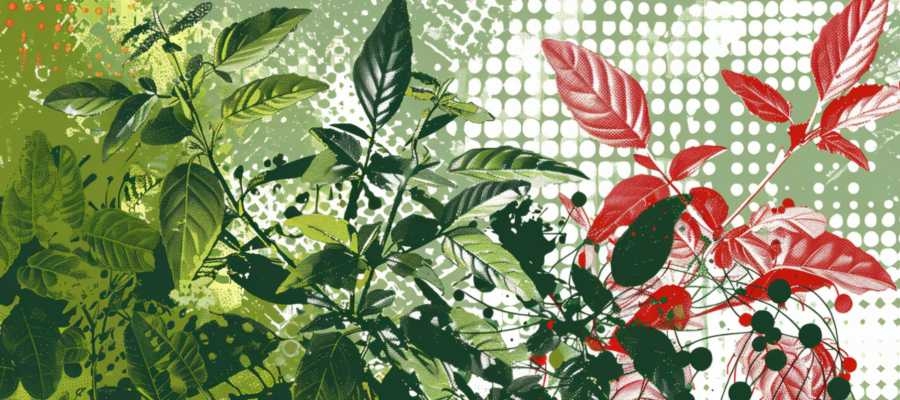Herbs and Spices 101: How to Flavor Your Dishes Like a Pro
 Diving into the world of herbs and spices is akin to embarking on a culinary adventure, where each pinch, dash, and sprinkle unlocks the secret to transforming mundane meals into masterpieces. It's not about wielding these flavor powerhouses with the reckless abandon of a pirate hoarding treasure, but rather, mastering the art of subtlety and balance to elevate your cooking from the ordinary to the extraordinary.
Diving into the world of herbs and spices is akin to embarking on a culinary adventure, where each pinch, dash, and sprinkle unlocks the secret to transforming mundane meals into masterpieces. It's not about wielding these flavor powerhouses with the reckless abandon of a pirate hoarding treasure, but rather, mastering the art of subtlety and balance to elevate your cooking from the ordinary to the extraordinary.
The Dynamic Duo: Fresh vs. Dried
Understanding the difference between fresh and dried herbs is the first step in your seasoning journey. Fresh herbs, with their vibrant colors and aromas, are like the lively characters in a novel, adding depth and complexity to dishes. They're best added towards the end of cooking, ensuring their delicate flavors shine through. Dried herbs, on the other hand, are the seasoned veterans, having lost some of their freshness but none of their potency. These concentrated flavor bombs are best used in the early stages of cooking, allowing their flavors to meld and mature with the dish.
Building Flavor Profiles: The Art of Combination
Creating harmonious flavor profiles is akin to composing a symphony, where each herb and spice plays a crucial role in the overall masterpiece. Start by familiarizing yourself with classic combinations, such as basil and tomato, rosemary and lamb, or cinnamon and apple. From there, experiment with adding or substituting herbs and spices to discover your unique culinary voice. Remember, the kitchen is your lab, and there are no failed experiments, only lessons learned (and occasionally, the need for pizza delivery).
Seasoning with Precision: Less is More
When it comes to seasoning, think of yourself as a sculptor, where each addition is a deliberate choice that brings you closer to your final masterpiece. Begin with a light hand, as you can always add more, but you can't take away. Taste as you go, adjusting the seasoning to find the perfect balance. This methodical approach ensures that your dishes are flavored just right, avoiding the all-too-common tragedy of over-salted soups and aggressively spiced stews.
Storage and Shelf Life: Keeping Flavors Fresh
Just as a knight keeps their armor polished and ready for battle, maintaining your arsenal of herbs and spices is crucial for peak performance. Store dried spices in a cool, dark place to preserve their flavor and prevent them from turning into tasteless dust. Fresh herbs, on the other hand, demand a bit more pampering. Treat them like bouquets of flavor—some thrive when stored in a glass of water in the refrigerator, while others prefer to be wrapped in damp paper towels. Knowing the shelf life of your seasonings ensures that you're always working with the freshest flavors, ready to vanquish the dragon of blandness from your kitchen.
Exploring Global Flavors: A Passport to Culinary Adventure
Embarking on a culinary journey around the world through herbs and spices not only adds variety to your cooking but also expands your palate and appreciation for global cuisines. From the smoky paprika of Spain to the vibrant turmeric of India, each herb and spice tells the story of its origin. Incorporating these global flavors into your dishes is like stamping your culinary passport, inviting your taste buds on an adventure without leaving the comfort of your kitchen.
Herbs and Spices as Health Allies
Beyond their ability to enhance flavor, many herbs and spices boast a plethora of health benefits, turning your kitchen into a veritable apothecary. Turmeric's anti-inflammatory properties, cinnamon's blood sugar regulation, and rosemary's memory-boosting effects are just a few examples of how these culinary tools can also serve as allies in your quest for well-being. It's a reminder that good food is not just about pleasure but also about nourishment and care for the body.
Wrapping Up: The Spice of Life
Mastering the art of using herbs and spices is a lifelong journey, one that transforms cooking from a mere necessity into a vibrant exploration of flavors and cultures. It's about finding joy in the little things—a sprig of thyme, a pinch of cumin—and discovering how these small additions can make a world of difference in your dishes. So, arm yourself with knowledge, experiment with confidence, and remember that in the grand kitchen of life, herbs and spices are the magic ingredients that make everything taste just a little bit better.
|
|







 Diving into the world of herbs and spices is akin to embarking on a culinary adventure, where each pinch, dash, and sprinkle unlocks the secret to transforming mundane meals into masterpieces. It's not about wielding these flavor powerhouses with the reckless abandon of a pirate hoarding treasure, but rather, mastering the art of subtlety and balance to elevate your cooking from the ordinary to the extraordinary.
Diving into the world of herbs and spices is akin to embarking on a culinary adventure, where each pinch, dash, and sprinkle unlocks the secret to transforming mundane meals into masterpieces. It's not about wielding these flavor powerhouses with the reckless abandon of a pirate hoarding treasure, but rather, mastering the art of subtlety and balance to elevate your cooking from the ordinary to the extraordinary.